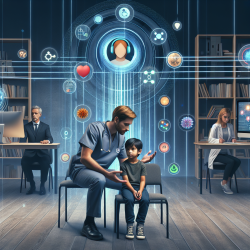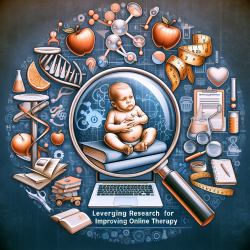As a Special Education Director, you understand the importance of addressing the diverse needs of students. One critical component of this is the role of Speech-Language Pathologists (SLPs). These professionals are essential in helping students overcome various communication and swallowing disorders, ensuring they can thrive academically and socially. Let's dive into how SLPs contribute to student success and the many ways they can support your school.
What Do Speech-Language Pathologists Do?
SLPs are highly trained professionals who assess, diagnose, and treat communication and swallowing disorders across the lifespan. Their expertise covers a wide range of areas, including:
- Speech Production: Helping students articulate the sounds of speech correctly.
- Fluency: Assisting with the flow of speech to address issues like stuttering.
- Voice: Ensuring that students' voices sound clear and healthy.
- Resonance: Improving how students' voices project and fill a room.
- Language: Enhancing both verbal and written communication skills.
- Augmentative and Alternative Communication (AAC): Utilizing pictures or devices to aid communication.
- Cognition: Supporting cognitive functions related to communication.
- Auditory Habilitation & Rehabilitation: Helping students with hearing impairments understand and use language.
- Feeding & Swallowing: Assisting with the mechanics of eating and drinking safely.
How Do SLPs Support Schools?
SLPs are not just about individual therapy sessions; they play a multifaceted role in the educational environment. Here's how they contribute:
- Collaboration: SLPs work closely with families, teachers, healthcare providers, and other professionals to ensure comprehensive care for each student.
- Counseling: Providing education, guidance, and emotional support to students and their families regarding communication disorders.
- Prevention: Identifying potential issues early to prevent the development of more severe disorders.
- Screenings & Assessments: Conducting evaluations to determine the presence and severity of communication, hearing, and swallowing disorders.
- Treatment: Developing and implementing individualized treatment plans to improve students' functional abilities.
- Instrumentation & Technology: Utilizing advanced tools and technologies to enhance assessment and treatment processes.
- Improvement: Continuously working to enhance the efficiency and effectiveness of service delivery in a dynamic educational environment.
- Diversified Practice: Engaging in advocacy, outreach, supervision, education, administration, leadership, and research to broaden their impact.
Why Online Therapy Services Matter
In today's digital age, online therapy services, like those provided by TinyEYE, are revolutionizing the way schools access SLP support. Online therapy offers several advantages:
- Accessibility: Students in remote or underserved areas can receive high-quality therapy without geographical limitations.
- Convenience: Scheduling is more flexible, accommodating the busy lives of students, parents, and educators.
- Consistency: Continuity of care is maintained even if a student relocates or during unforeseen circumstances like school closures.
- Engagement: Interactive and engaging digital tools make therapy sessions enjoyable and effective.
SLPs are indispensable in fostering communication skills and overall well-being in students. By leveraging online therapy services, schools can ensure that every student has the opportunity to succeed. For more information, please follow this link.










